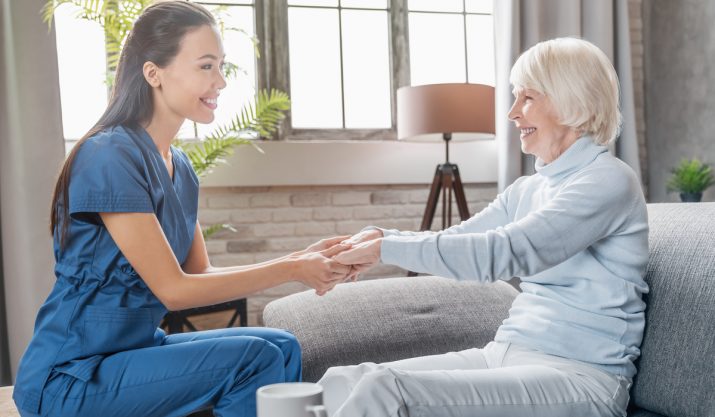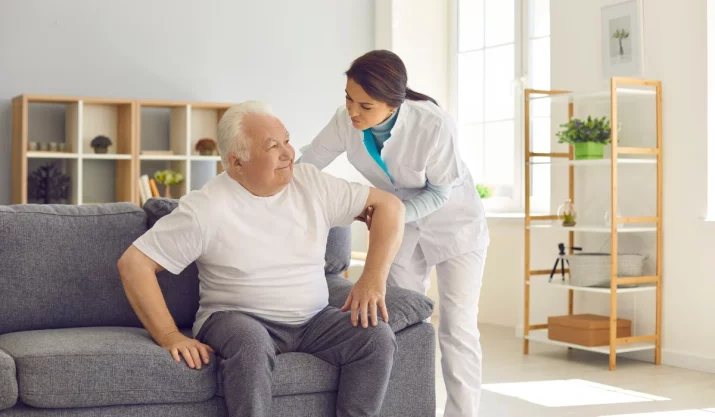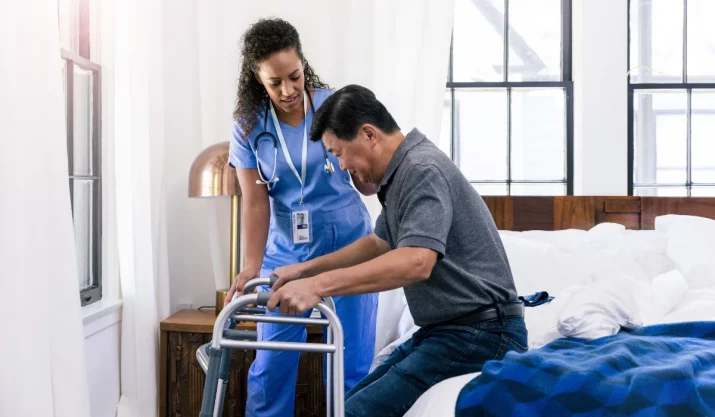Mind & Body Connection: Helping Seniors Stay Healthy
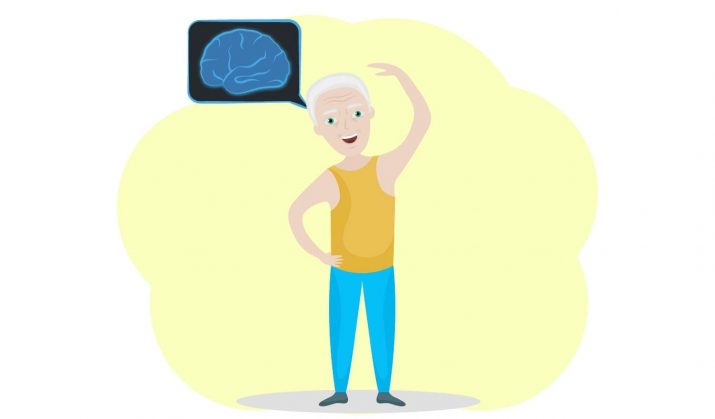
Table of Contents
Your entire body is connected, and the organ in charge of connecting your body is the brain. What you think influences what your body does and even how your body feels. Think about lifting your hand to grab the doorknob, your body responds. However, your brain isn’t only in charge of mobility, speech, and your senses.
Someone who is experiencing stress may see that stress manifested in physical symptoms, such as headaches, digestive problems, or high blood pressure. In much the same way, physical conditions may affect you mentally. We often see this when someone becomes depressed or anxious while dealing with a serious illness. And when they feel physically healthy, they may experience less stress or depression. When we are in a positive mental state, our bodies produce endorphins, which are natural painkillers and may make people, physically, feel better.
If you are a caregiver or the adult child of an aging parent, it may be difficult to see someone struggling with some of the challenges that may come with aging, but there are things you can do to help your older parents, friends, family members, or patients, maintain a healthy mind-body balance that will help them live an active life long after retirement. Here are some things to try.
Injury Prevention
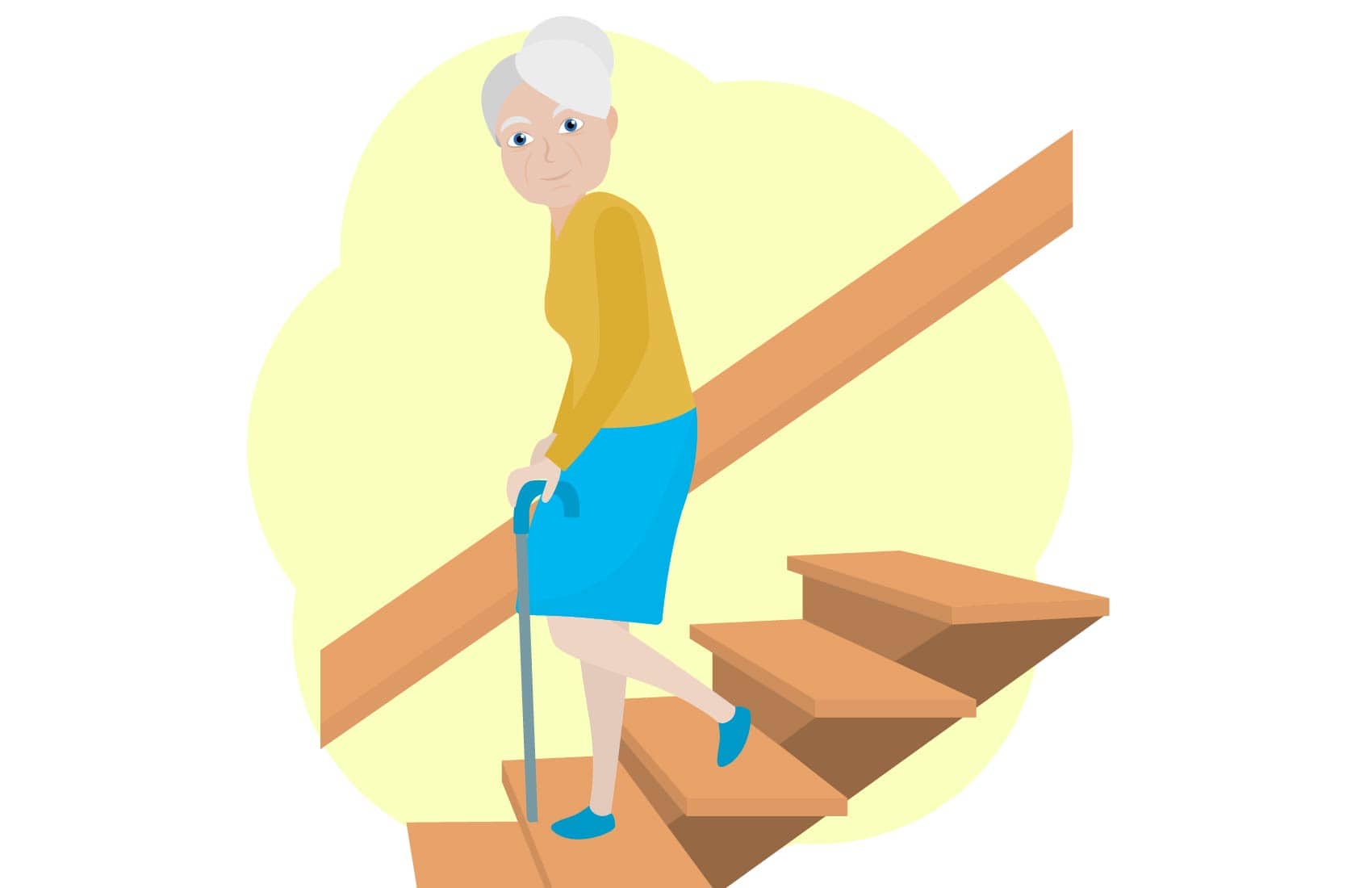
Retaining independence is especially important to consider when helping your loved ones maintain a positive mind-body balance. Unfortunately, many older adults struggle with mobility issues and may be at risk of falling. According to the United States Census Bureau, nearly 40 percent of older adults age 65 and over suffer from at least one disability.
Falls are the leading cause of serious injuries for older adults. Over 300,000 seniors aged 65 and older are hospitalized each year for hip fractures alone. You may reduce the risk of injuries from falling by helping them improve mobility and stability. This can include using a cane or walker, adding non-slip flooring and grab bars in bathrooms, or using stairlifts for the elderly who live in homes with staircases.
Other types of possible injury prevention strategies include exercising both physically and mentally (more discussed in further sections).
Maintain Healthy Physical Activity
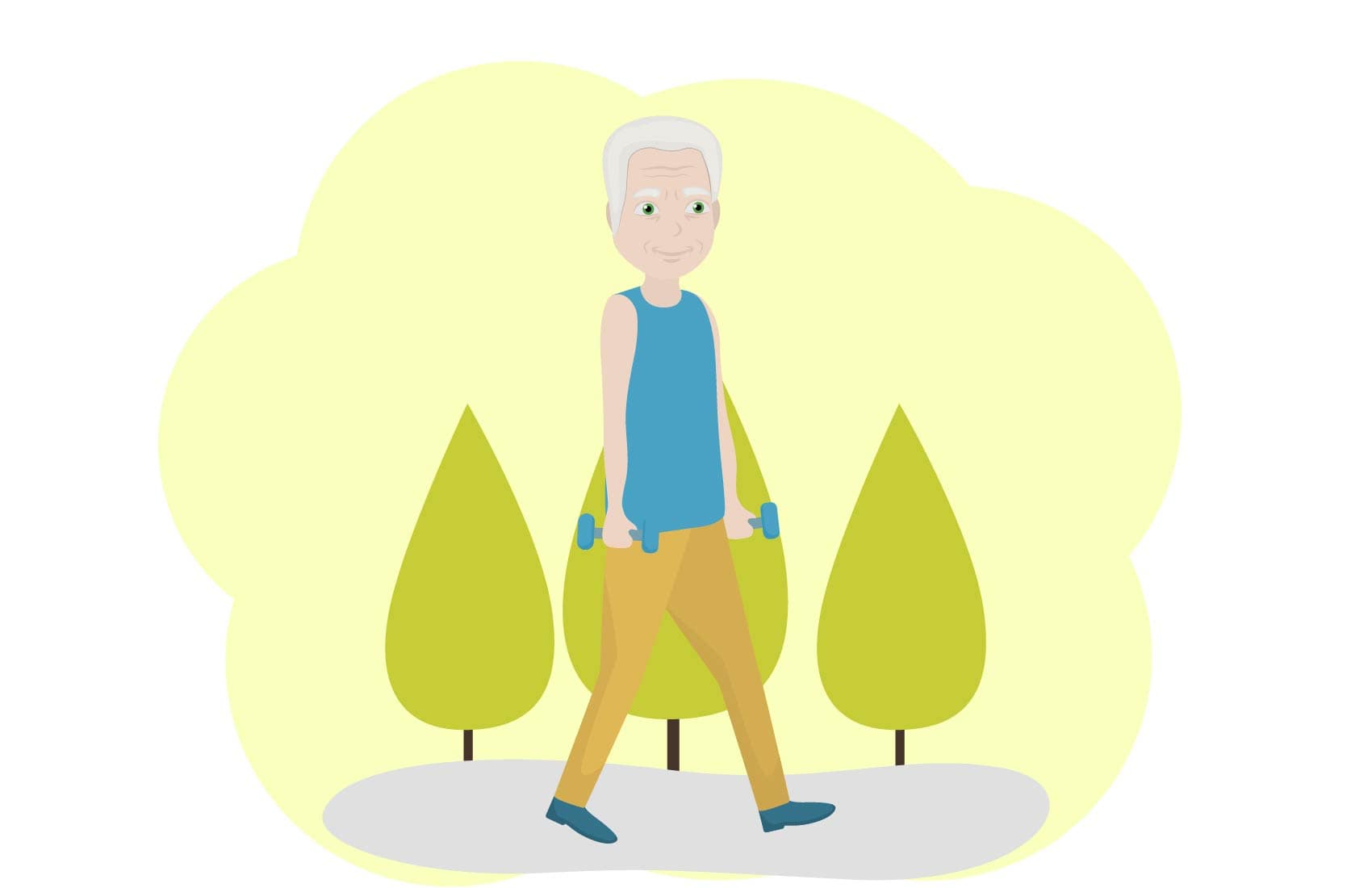
Exercise may help maintain a healthy weight and reduce the risk of certain diseases and medical conditions, including diabetes, heart disease, and depression. Older adults should participate in physical activities that include aerobic activity, muscle strengthening, and balance training. For those with impaired mobility, chair exercises can be quite beneficial.
The CDC recommends 150 minutes of moderate aerobic activity per week, and those who cannot do this because of medical conditions should still be as active as possible. Examples of aerobic activities include walking, swimming, jogging or running, biking, and tennis.
Muscle-strengthening activities improve muscle tone and build strength. Examples of muscle-strengthening activities include bodyweight exercises, using weight machines or hand-held weights, yoga, and gardening. Don’t forget that when exercising the muscles, we are also exercising our bones, which can increase bone density and strength.
Balance training exercises may improve mobility, promote flexibility, and also help prevent injuries. Examples of balance training exercises include walking heel-to-toe, using a wobble board, and strengthening the muscles of the abdomen, legs, and back. Gentle stretching may also improve balance and flexibility.
Eat Healthy, Nutritious Foods

The late comedian, George Burns, once said, “I stay away from natural foods. At my age, I need all the preservatives I can get.” In all seriousness though, it is important to eat a healthy diet that includes a variety of fruits and vegetables in addition to high-quality protein and whole grains. Encourage your senior loved one to control portion sizes, reduce salt and sugar intake, and drink plenty of water.
Encourage Mental Stimulation
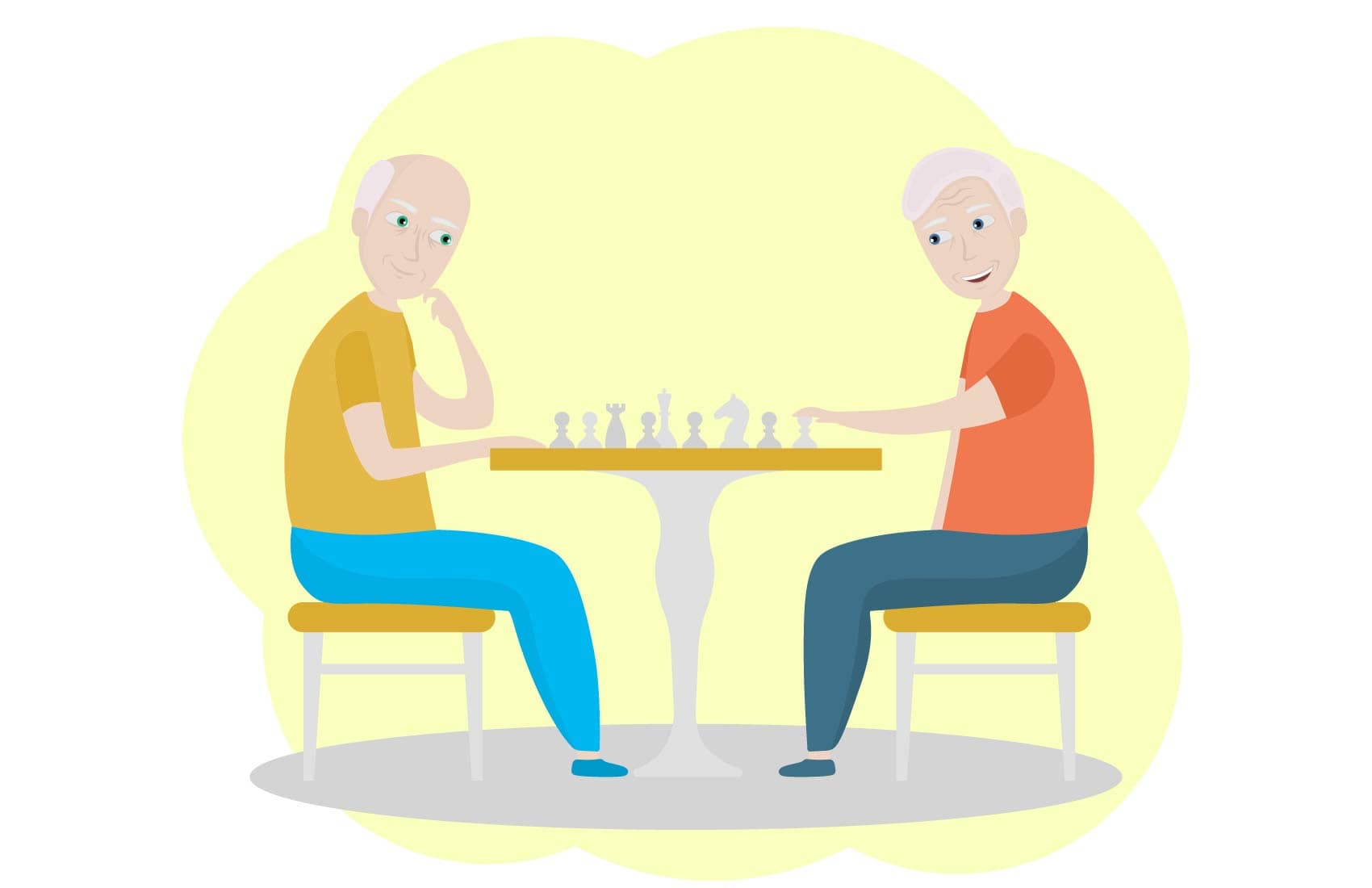
The mind is a safe haven and the only place that we’re really in control of and have full freedom. If an older loved one is diagnosed with a disease such as dementia or Alzheimer’s, then they start to lose these freedoms and even physical control.
A study from the Cochrane Library, which is a scientific review board in the United Kingdom, found that mental stimulation helped improve scores on memory and thinking assessments for those participants. The improvement was equivalent to a six to nine-month delay in the worsening of symptoms. While those with severe dementia did not show improvement, mental stimulation may be a great way to improve the quality of life for people with mild to moderate dementia.
Help them keep their brains active by engaging in mentally stimulating activities that require them to think, learn, and remember, such as reading, playing games, doing puzzles, or even learning a new language.
Another type of mental stimulation is meditation. With proper meditation and breathing techniques, you may notice improvements in emotional management, memory, and focus.
Maintain Social Connections
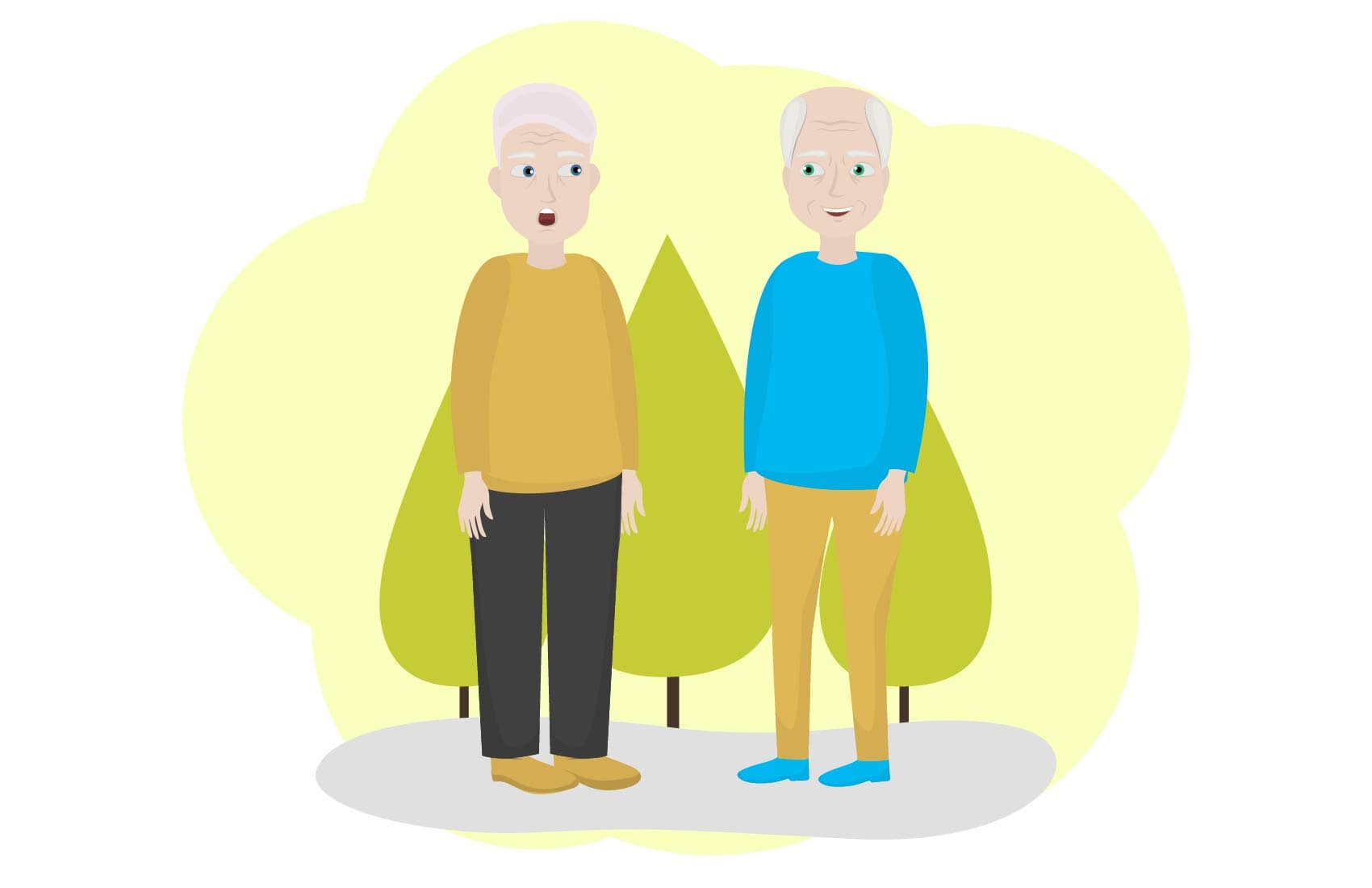
Many people enjoy spending time with their grandchildren, volunteering, working part-time, or taking part in social activities such as joining social clubs, book clubs or church groups. Aging can feel like a lonely process, especially for those who live at home alone. Having strong friendships and an active social life may encourage people to get out of the house and enjoy the company of others.
Get Adequate Sleep
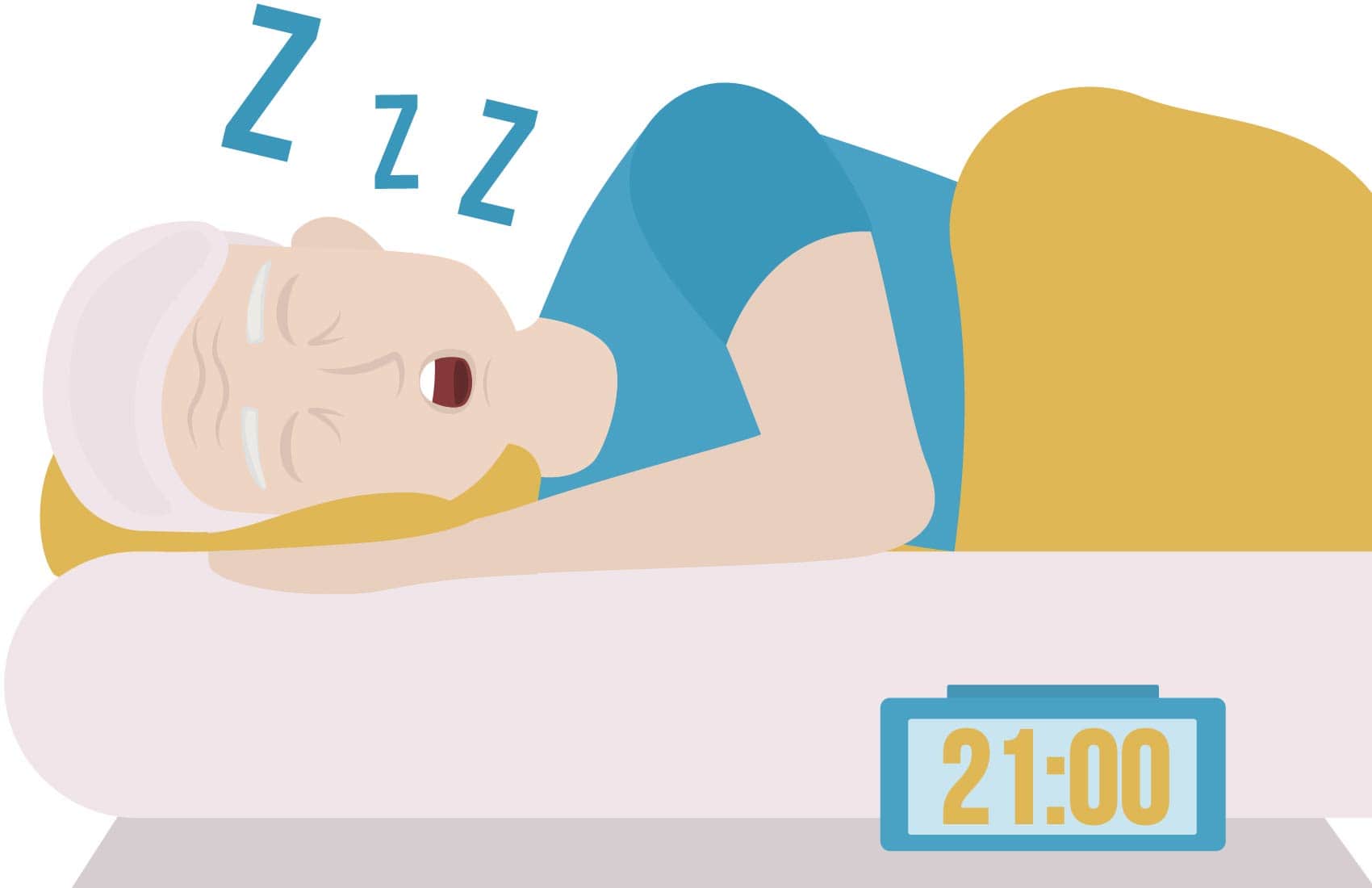
It’s crucial to get adequate sleep, which is ideally about 7-8 hours each night. This will leave them well-rested and ready to take on the day ahead. Some people may experience disorders that impede their sleep, such as sleep apnea, insomnia, or restless leg syndrome. There are treatments for each of these conditions.
The connection between the mind and the body is a complex one. It is crucial to take both physical and mental health into consideration as you care for your older loved ones. Taking steps to improve physical and mental health can help ensure they continue to have full, active lives.




